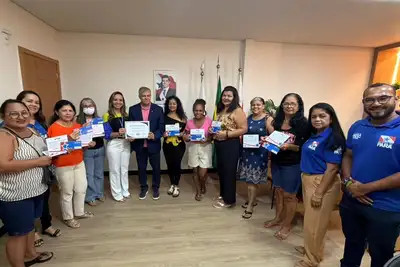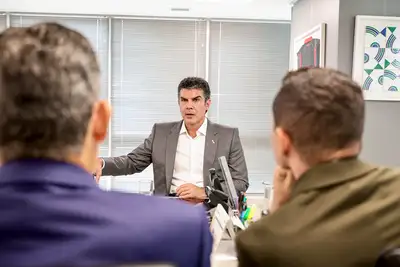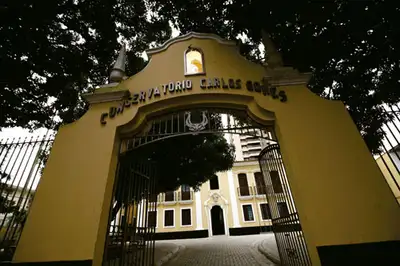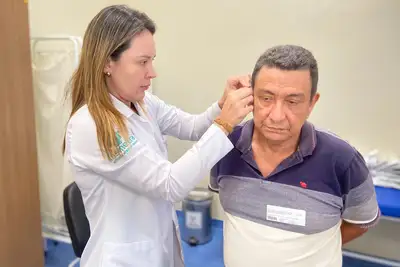Pará participates in the construction of the Brazil 2050 Strategy and launches Pará 2050
The plan aims to prepare the state for future challenges, promoting sustainable development, social inclusion, and institutional strengthening
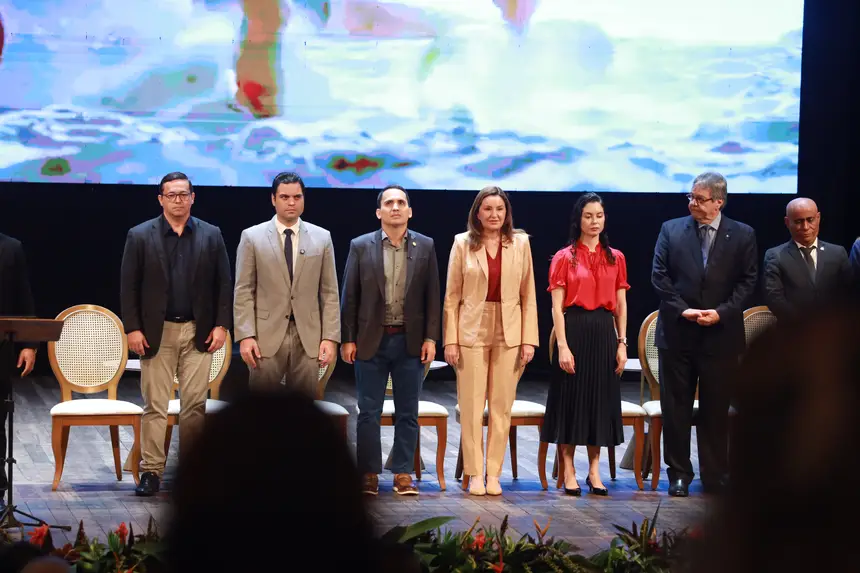
The Ministry of Planning and Budget (MPO), through the National Planning Secretariat (Seplan), in partnership with the Government of the State of Pará, through the State Secretariat of Planning and Administration (Seplad), held on this Monday (16), at Theatro da Paz, in Belém, the seminar "Dialogues for the Construction of the Brazil 2050 Strategy." The central objective of the event was to integrate Pará into the process of building the Brazil 2050 Strategy, as well as to officially launch the Long-Term Strategic Plan of the State of Pará (Pará 2050).
Pará 2050, a plan that will guide the long-term strategic planning actions of the state, aligned with the objectives of the national strategy, aims to prepare the state for future challenges, promoting sustainable development, social inclusion, and institutional strengthening.
Hana Ghassan, the vice-governor of the state of Pará, president of the State Committee of COP 30, and Secretary of State for Planning and Administration of Pará, highlighted the process of building Pará 2050 and how it will guide the future of the state.
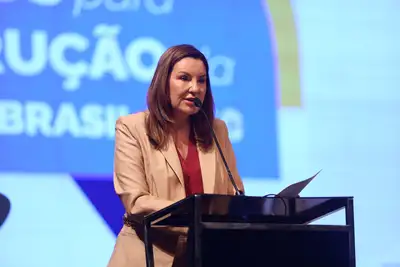
"It is very important that we are working on the strategic planning of the state with Pará 2050 - the Pará we want in the future. This plan was built from extensive social listening because we understand that there are many 'Parás' within our state. This collective process allowed us to develop a solid plan based on contributions from various sectors of society. Today, we present to the federal government these strategies, the result of this joint work, which dialogues with the national strategic planning under construction. It was an important step to transform the dreams of the population, gathered in this listening process, into strategies — and, from them, into reality. Our focus is the tripod: economic development, social inclusion, and sustainability. We listened to various economic sectors, understanding their needs and priorities, to build a fairer, more competitive, and prepared state,” explained Hana Ghassan.
The Brazil 2050 Strategy aims to establish a strategic reference for the country, capable of guiding public policies based on active listening from society and partnerships between federative entities and institutions. The initiative is built collaboratively, based on three fundamental pillars: citizen participation, multi-level governance, and knowledge production.
The national planning secretary, Virgínia de Ângelis, emphasizes the importance of long-term planning for more effective decisions in the present. "Today, in the state of Pará, we have the opportunity to listen directly to local actors about these potentialities, many of which are already included in the Pará 2050 plan. As the federal government, we stand alongside the state of Pará to strengthen this strategy and build, together, a solid path towards sustainable development in Brazil. Planning for the future, planning long-term, is essential for us to have better decisions in the present. Looking to the future allows us to identify what is structural, what needs to be urgently resolved. We face historical challenges, such as social and regional inequalities, as well as the low productivity and competitiveness of the country. Overcoming these challenges requires a perspective that goes beyond mandates and the short term. Long-term planning is essential for more efficient public management. Therefore, we are promoting active listening in all regions of Brazil, aiming to bring the specificities and potentialities of each locality into national strategic planning. We have an extremely diverse country, and our strategy needs to reflect this diversity, incorporating the main challenges and opportunities of each region,” clarified Virgínia.
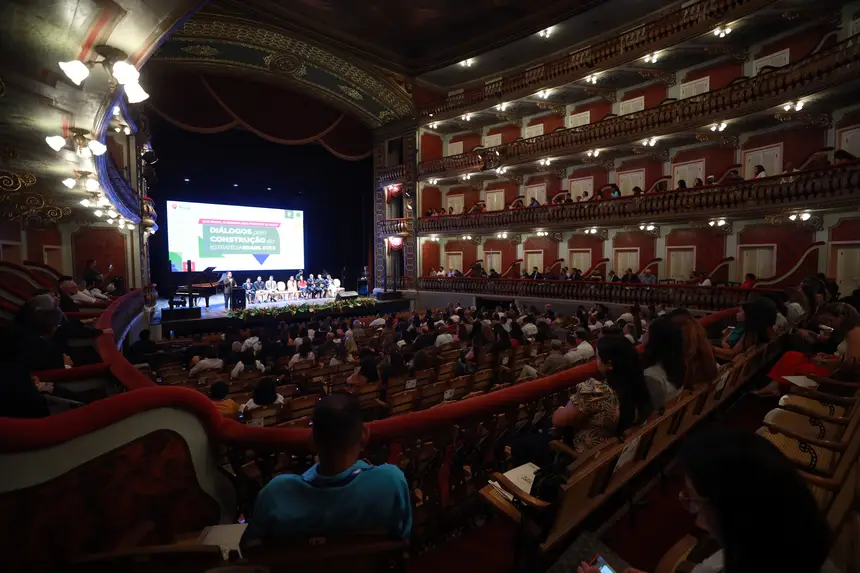
With this, Pará positions itself as a protagonist in the formulation of long-term public policies, actively contributing to national planning and reaffirming its commitment to building a more equitable, innovative, and resilient Brazil by 2050.
“I am very honored and I thank the state government that prioritized this space for social control, which is fundamental in the governance of representative and participatory democracy. I could not let these opportunities pass representing my segment of retirees, but as a retired person and an elderly person, I am in various spaces of public political debate. I contributed as much as I could, representing my social segment,” expressed Marly dos Anjos, from the State Council for the Rights of the Elderly.
During the event, topics such as reducing regional inequalities, ecological transition, increasing productivity, and strengthening democracy as an indispensable condition for building a fairer and more prosperous country were discussed.
“This is a very significant moment, especially considering the months of collective construction we have experienced as civil society. The launch of Pará 2050 represents the consolidation of a continuous effort to ensure that long-term planning includes real investments in social and human capital. It is essential that the public budget and public policies are aligned and engage in a permanent dialogue, ensuring the longevity, sustainability, and prosperity of our society,” commented Matheus Oliveira, co-founder of the Cooperation of Amazonian Youth for Sustainable Development (Cojovem).

The event brought together representatives from the public power, civil society, research institutions, universities, and the private sector, promoting debate on the main challenges and paths for sustainable and inclusive development for the next 25 years.
Rubens Magno, the superintendent director of Sebrae in Pará, commented that small businesses represent more than 90% of formal companies in Brazil and, therefore, should be at the center of discussions about the future of the country.
“Throughout Brazil — and it is no different in the rest of the world — small businesses always represent the largest share of the market. In Brazil, more than 90% of formal companies are made up of micro and small enterprises. Thus, for a dialogue like this, focused on building the future with an eye on 2050, the discussion must indeed involve these small businesses. And the role of Sebrae is precisely to take care of that. What we want is, in a very active way, to contribute to this construction and, mainly, to show the strength of small businesses and the importance of the attentive gaze of federal, state, and municipal governments, so that support for these entrepreneurs happens effectively — with deregulation and conditions for these businesses to be, in fact, protagonists. Therefore, this construction is fundamental. We are very happy to be part of this dialogue and, especially, to see the federal government planning the next 25 years with this perspective,” concluded Rubens.
Throughout the seminar, a plenary dialogue was held on the theme “What Brazil do we want in the next 25 years?”, bringing together representatives from the federal, state, and civil society to discuss long-term development strategies.
The seminar has already taken place in states such as Amapá, Amazonas, Bahia, Ceará, Espírito Santo, Maranhão, Minas Gerais, Paraíba, Pernambuco, Rio Grande do Sul, Roraima, and São Paulo. Pará is the 14th state to host the event, which has also taken place in the Federal District.





